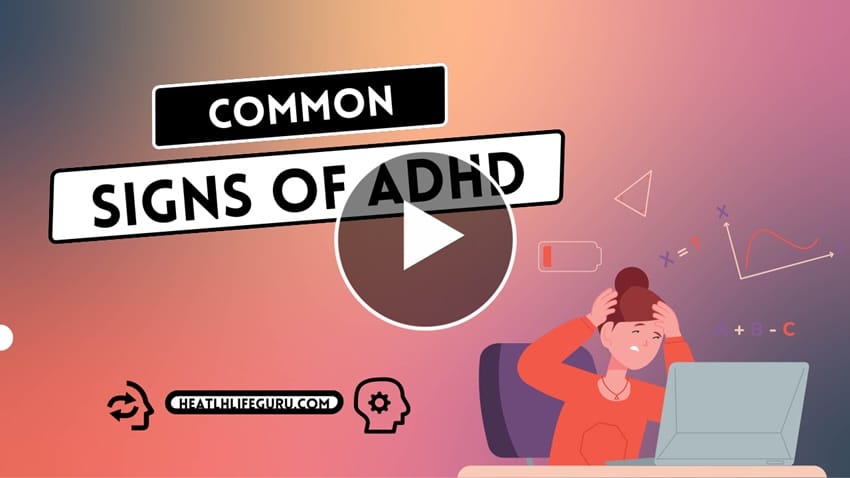Ever find yourself wondering why some people seem to shed pounds effortlessly while others struggle despite their best efforts? The answer may lie in the complex interplay between genetics and lifestyle choices. This post aims to unravel the role of genetics in weight loss, offering a nuanced understanding of what you can and can’t control. While it’s tempting to attribute your weight solely to your genetic makeup or lifestyle, the truth is far more intricate. By the end of this post, you’ll gain valuable insights into how genetics and lifestyle factors contribute to weight loss, empowering you to make informed decisions for a healthier you.
Contents
- The Science Of Genetics: A Brief Overview
- Genetic Factors In Weight Management
- Lifestyle Choices: The Other Side Of The Coin
- The Interaction Between Genetics And Lifestyle
- What You Can Control
- What You Can’t Control
- The Pitfalls Of A One-Sided Approach
- The Power Of A Balanced Approach
- The Final Weigh-In: Your Takeaway For A Healthier You
- Related
The Science Of Genetics: A Brief Overview

Genetics is the study of heredity, focusing on how specific traits are passed down from one generation to the next. These traits range from eye color to more complex characteristics like susceptibility to certain diseases. Your genetic makeup is like a blueprint, providing a foundational structure for your physical attributes. However, it’s crucial to note that this blueprint is not set in stone; various external factors can influence how these genetic traits manifest.
Understanding the science of genetics is the first step in grasping its role in weight loss. Genes influence various bodily functions, including metabolism, fat storage, and even your likelihood of engaging in physical activity. But before you jump to conclusions, remember that genetics is just one piece of the puzzle. The following section will delve into the specifics of how genetics can influence your weight, but it’s essential to keep in mind that other factors are also at play.
Genetic Factors In Weight Management

Certain genes are known to influence metabolism—the process by which your body converts food into energy. A faster metabolism can make it easier to lose weight, while a slower metabolism may make weight loss more challenging. Additionally, genetics can influence how your body stores fat. Some people are genetically predisposed to store fat in certain areas, such as the abdomen or thighs, which can make weight loss in those specific areas more difficult.
However, it’s not all doom and gloom if you find yourself on the challenging end of the genetic spectrum. While you may have a genetic predisposition to obesity or a slower metabolism, these are not definitive factors that seal your fate. The role of genetics in weight management is not an excuse to abandon healthy lifestyle choices.
Lifestyle Choices: The Other Side Of The Coin

Diet and exercise are often the first things that come to mind when considering weight loss. Consuming a balanced diet rich in nutrients and low in processed foods can significantly impact your weight. Exercise, too, plays a crucial role; regular physical activity can help you burn calories, improve your metabolism, and even alter how your body stores fat. These lifestyle choices can work in your favor, even if your genetics suggest otherwise.
While it’s easy to focus on diet and exercise as the be-all and end-all of weight loss, it’s essential to consider other lifestyle factors that can influence your weight. Stress, for example, can lead to weight gain through mechanisms like emotional eating or hormonal imbalances. Therefore, a holistic approach to weight loss should include not just diet and exercise but also stress management techniques like mindfulness and adequate sleep.
The Interaction Between Genetics And Lifestyle

The relationship between genetics and lifestyle is not a simple one-way street; they interact in complex ways that can either hinder or promote weight loss. This interaction is often mediated through epigenetics, a field of study that explores how environmental factors can influence gene expression. For example, a balanced diet and regular exercise can positively affect genes related to metabolism and fat storage, potentially offsetting genetic predispositions.
Case studies and research have shown that lifestyle changes can have a significant impact even when genetic factors are not in your favor. For instance, individuals with a family history of obesity have been able to maintain a healthy weight through consistent exercise and dietary modifications. This suggests that while genetics can set certain boundaries, lifestyle choices can stretch those boundaries, offering more control over your weight than you might initially think.
What You Can Control

When it comes to weight loss, there are several lifestyle modifications that can tip the scales in your favor. Diet changes, such as portion control and opting for balanced meals rich in nutrients, can make a significant difference. Exercise is another controllable factor; whether it’s cardio, strength training, or a mix of both, regular physical activity can help you shed those extra pounds.
Beyond diet and exercise, stress management techniques like mindfulness and meditation can also contribute to weight loss. High-stress levels can lead to hormonal imbalances that promote weight gain, so keeping stress in check is crucial. Additionally, adequate sleep can positively impact your metabolism and hunger hormones, making it easier to maintain or lose weight.
What You Can’t Control

While it’s empowering to focus on the factors you can control, it’s equally important to acknowledge the limitations imposed by genetics. Some individuals have a “set point” weight that their body naturally gravitates toward, regardless of lifestyle changes. This set point can make it challenging to maintain weight loss over the long term, even with consistent lifestyle modifications.
Managing expectations is crucial when you’re up against genetic limitations. It’s essential to approach weight loss with a realistic mindset, understanding that you may face more challenges than others due to your genetic makeup. However, this doesn’t mean you should give up; instead, focus on achievable goals and celebrate the small victories along the way.
The Pitfalls Of A One-Sided Approach

Attributing weight entirely to genetics can be a slippery slope, leading to a defeatist attitude that ignores the potential impact of lifestyle changes. On the flip side, solely focusing on lifestyle modifications can set you up for disappointment if you don’t consider your genetic predispositions. Both approaches have their limitations and can lead to an incomplete understanding of weight loss.
Striking a balance between acknowledging genetic factors and making lifestyle changes is key to a more nuanced approach to weight loss. Understanding that both elements contribute to your weight can help you tailor a more effective and sustainable weight loss plan. This balanced perspective allows you to make informed decisions, optimizing your chances for long-term success.
The Power Of A Balanced Approach

Taking a balanced approach to weight loss means acknowledging the role of both genetics and lifestyle and using this knowledge to your advantage. By doing so, you can create a tailored plan that considers your unique genetic makeup and lifestyle factors. This approach allows you to set realistic goals, implement effective strategies, and ultimately achieve more sustainable results.
Understanding the limitations of focusing solely on either genetics or lifestyle can liberate you from a one-dimensional view of weight loss. By embracing a balanced approach, you’re not just relying on what you can control but also adapting to what you can’t. This adaptability can make the journey to weight loss more manageable, effective, and rewarding.
The Final Weigh-In: Your Takeaway For A Healthier You
In the quest for weight loss, understanding the role of genetics can be both enlightening and empowering. While you may not have control over your genetic makeup, you do have control over your lifestyle choices. By taking a balanced approach that considers both factors, you set the stage for more sustainable, long-term success. So, don’t let genetics deter you; instead, let this knowledge guide you in making smarter, more informed decisions for a healthier, happier you.


